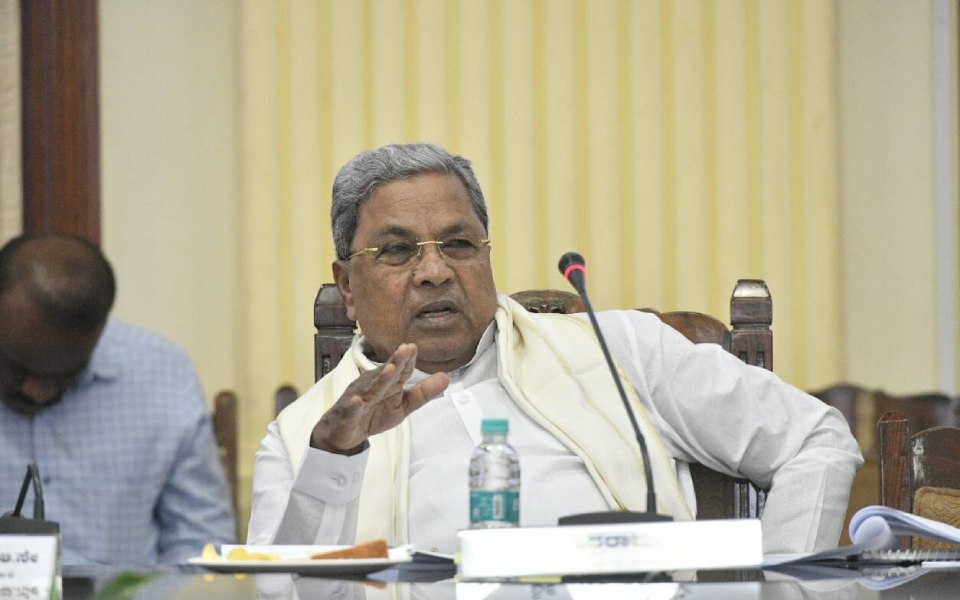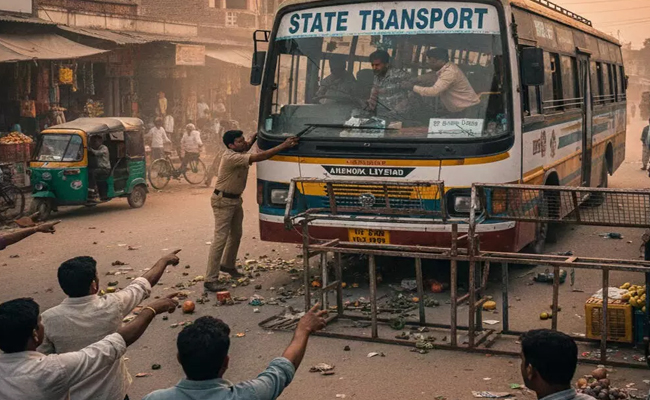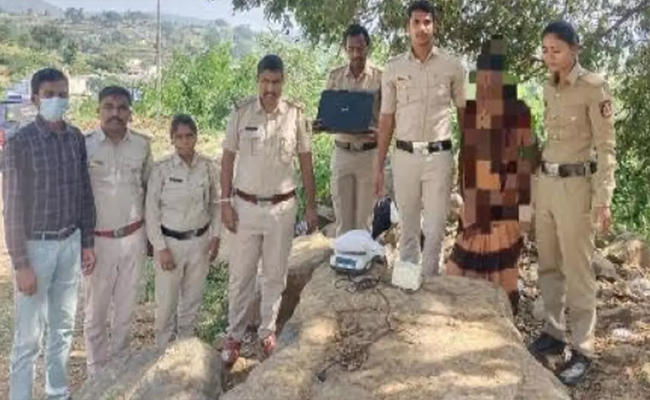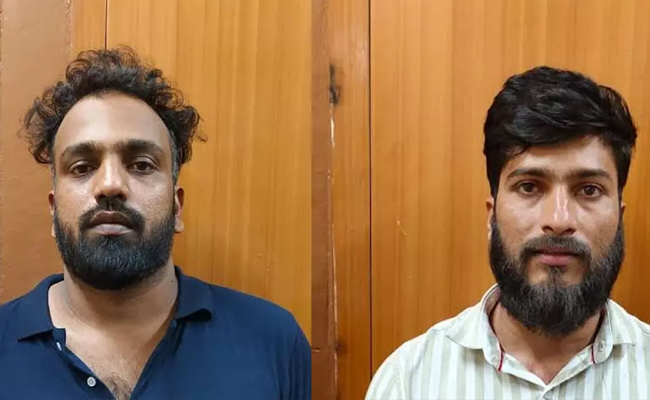Bengaluru (PTI): Karnataka Chief Minister Siddaramaiah on Wednesday hit out at the BJP, alleging that the IT and ED raids are being carried out to blackmail rich businessmen and contractors to collect money, as the party is unable to mobilise funds like before and it is almost certain about defeat in the upcoming five state elections.
Targeting the BJP and its leaders for charging the Congress government led by him with corruption, the CM claimed that the J P Nadda-led party is already looking for lame excuses to explain its drubbing in the upcoming elections.
He was reacting to BJP's allegation that crores of rupees recovered from contractors during the recent IT department searches, was commission money collected at the behest of the ruling Congress in Karnataka to fund the party for elections in five states.
"The BJP is not being able to mobilise funds like before as it is almost certain about their defeat in the upcoming five state elections as well as in the 2024 Lok Sabha elections. Moreover, its biggest source of 40 per cent commission in Karnataka has also stopped now.
Hence, IT-ED attacks are being carried out to blackmail rich businessmen and contractors to collect money," Siddaramaiah said in a post on 'X'.
Looking at the recent political developments, the BJP's defeat appears imminent in the assembly elections of the five states, the CM claimed. "So, the party is already looking for lame excuses to explain its drubbing. It won't be surprising if a statement from the BJP comes out the day after the election saying that we lost because of the Congress party's money power."
The details of money collected by BJP through electoral bonds is the proof that which party is involved in looting money for its electoral politics, the Chief Minister said, adding that between March 2018 and January 2023, electoral bonds worth Rs 12,008 crore were sold, of which Rs 5,272 crore belong to the BJP.
"Did the businessmen give this money voluntarily? Or were they blackmailed?" he asked.
Siddaramaiah alleged that former BJP MLA Madal Virupakshappa went to jail after getting caught red-handed while taking hefty bribes, but when he was released on bail, BJP leaders carried him on their shoulders. "But now they are demanding our resignations for the money found in the house of some private contractor. Does the BJP have any morality?"
The faces of BJP leaders dominate in the state's history of corruption scandals, he said.
State BJP leaders such as former Chief Minister B S Yediyurappa, former ministers G Janardhana Reddy, Katta Subrahmanya Naidu and Krishnaiah Shetty, former MLA Sampangi, and Virupakshappa - all have been jailed on corruption charges. The people of the state are taking note of this and laughing at those accusing us of corruption, the Chief Minister said.
Alleging that former ministers K S Eshwarappa, Muniratna, K Sudhakar and B C Patil of BJP were accused of charging 40 per cent commission, Siddaramaiah said former Chief Minister Basavaraj Bommai and state BJP President Nalin Kumar Kateel have been implicated in the Bitcoin scam.
"Dr Ashwath Narayan, B Y Vijayendra and Araga Jnanendra (BJP leaders) are facing charges of involvement in the PSI recruitment scam. B L Santosh, Sunil Kumar and C T Ravi (BJP leaders) have been named in the election ticket fraud case. It is ridiculous that all of them are accusing us of corruption," he said.
"It is amusing to see ex-minister Eshwarappa, who was allegedly the reason behind the suicide of a contractor, and Yediyurappa, who has been jailed over corruption allegations, pontificating on the issue of corruption now," he added.
It is ironic that these BJP leaders, who have "looted money" from corporates and handed over the country to "the king of corporate corruption Adani", are talking about corruption today, the CM said.
"Each of the scams of businessman Gautam Adani is crossing lakhs of crores (of rupees). There is no accounting for the misappropriation of thousands of crores (of rupees). The leaders of BJP, especially (Prime Minister Narendra) Modi, have not been able to answer even one of the countless questions asked by the Congress party in this regard."
Let the Truth be known. If you read VB and like VB, please be a VB Supporter and Help us deliver the Truth to one and all.
Bengaluru: Vidyaranyapura police have arrested four persons, including a man posing as a Police Sub-Inspector (PSI), for allegedly breaking into a house, threatening the occupants, and extorting money while wearing police uniforms.
The arrested accused have been identified as Mallikarjuna, Pramod, Vinay, and Hrithik.
Police said the accused had hatched a plan to pose as police personnel, conduct fake raids, and extort money from residents by intimidation.
ALSO READ: Bantwal police arrest two men for illegal sale of narcotics, seize two vehicles, 810 gm ganja
According to the police, Mallikarjuna had failed the PSI examination twice and later falsely projected himself as a PSI. He allegedly conducted photo shoots in his hometown, Siraguppa, wearing a police uniform, baton, cap, and shoes, claiming to be serving as a PSI in Bengaluru.
On December 7, the four accused allegedly went to the house of Naveen in the Vidyaranyapura limits, threatened him with a stick and an iron rod, and claimed they had information that he was selling ganja. Under the pretext of searching, they allegedly extorted ₹87,000 through bank transfer, ₹53,000 in cash kept in the house, and ₹2,000 from his wallet.
Following Naveen’s complaint, Vidyaranyapura police registered a case and launched an operation, leading to the arrest of all four accused. Police have seized ₹45,000 in cash and the car used to commit the crime.
Further investigation is underway.





